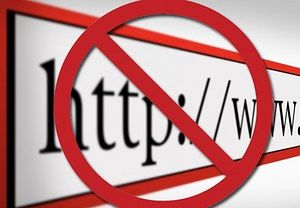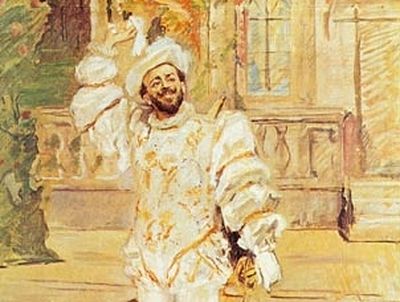Moscow, April 15, 2015

If the Russian court system gets its way, however, the number of legal pornographic websites on the RuNet could drop to zero. That's right: a district court in Tatarstan has banned 136 porn sites, and the language of its ruling implies that all Internet porn is hereby against the law.
On April 13, 2015, the newspaper Izvestia reported that a court in Tatarstan's Apastovsky district has ordered Roskomnadzor, the federal government's media watchdog, to add 136 websites to its Internet blacklist, if the sites fail to purge themselves of all pornographic content within the next three days. The list of websites includes xHamster, one of the most popular destinations for pornography in the world.
The local district attorney's office, which petitioned the court to crack down on Internet porn, cited in its suit obscure international agreements from the early twentieth century, Izvestia reported.
First, prosecutors pointed out that international treaties constitute an integral part of Russian law according to the Russian Constitution, even arguing—rather unorthodoxly—that international obligations take priority over domestic legislation, when the two are in conflict. Then, prosecutors cited the Convention for the Suppression of the Circulation of Obscene Publications, signed in Paris in 1910, and the subsequent international agreement signed in Geneva in 1923, both of which ban the production, possession, and distribution of pornographic materials.
The signatories to these international accords were, of course, the Tsarist Empire and the Soviet Union, and the Apastovsky district attorney says today's Russian Federation is still bound by these agreements.
According to an adult-film maker who spoke to Izvestia, Russian law is very vague about regulating pornography. The only law on the books, he says, is Article 242 of the federal criminal code, which delineates several illegal types of distribution, but does not clearly define legal ways to advertise, disseminate, and trade in porn.
How did the Tartarstan prosecutors flag 136 websites—Russia's largest-ever single ban request—for Roskomnadzor's blacklist? The district attorney's office says it searched Yandex (Russia's leading Internet search engine) for the terms “Kazan prostitutes” and “porno video.” Film experts at the Ministry of Culture then examined the websites on this list and confirmed that they are indeed brimming with pornographic content.
It remains unclear if Roskomnadzor will block these websites across Russia or only in Tatarstan. It is also unknown if Roskomnadzor and the Apastovsky district attorney will stop with these 136 websites, or wage a larger campaign against the millions of other porn sites online.
Whatever happens, this is just the latest episode in a broader crackdown on the Internet that has taken place in Russia since Vladimir Putin returned to the Kremlin in 2012. For some Russian Internet users, like musician Sergei Shnurov, Putin's third presidential term has already spoiled porn, whatever happens in Tatarstan:

Putin on the television. Putin on the radio. Putin's also on the Internet. I'm afraid even to look at porn…



